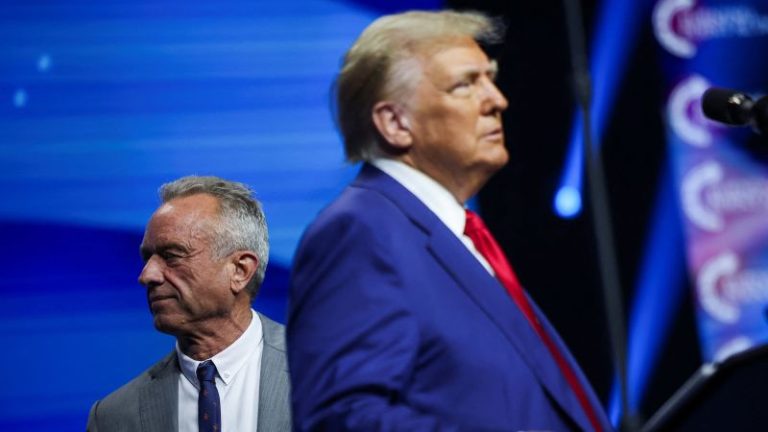In the midst of the bubbling political pot that is America today, the most recent slur by Kamala Harris against President Donald J. Trump can only be described as tired and joyless. Harris, in her continual tirade against the sitting president, tends to paint him as a typical Republican who harbors a soft spot for the affluent, as someone who is frivolous and egotistic. However, such attempts are not only fallacious but also utterly devoid of a deep analysis of Trump’s ideology and track record.
To describe Trump as a fascist is not only a gross misinterpretation of his political leanings, it is also a glaring misunderstanding of what fascism truly embodies. Through an exploration of political history presented in my book, “The Case for Nationalism,” one realizes how fascists despised parliamentary democracy in the bloodstained era of the 20th century. Is Trump, therefore, truly a fascist? Far from it.
Trump’s commitment to democracy is irrevocable and it has been evident throughout his ascension to the presidency and his subsequent tenure. His patriotism and nationalist agenda are not rooted in crushingly authoritarian ways reminiscent to fascist doctrine. On the contrary, the president’s commitment to ‘America First’ is focused on preserving American prosperity, restoring self-reliance, and upholding the democratic rules of the game.
While critique in politics is expected and even necessary for democratic discourse, Harris’s consistent anti-Trump rhetoric has crossed the thin line that differentiates substantive criticism from an incessant and joyless bashing. The objective, it seems, is not to constructively engage, challenge, or hold the president accountable, but rather to mount baseless assertions that are far removed from reality.
The fervor with which Trump has proposed and considered policies, ever since his election campaign in 2016, has always revolved around what he believes is best for his fellow Americans. Whether it was tax cuts intended to stimulate economic growth, or restricted immigration with the aim of national security – his decisions illustrate the virtues of national self-interest, not the tenets of fascism.
Moreover, a critical evaluation of Trump’s relationship with the Congress further shatters the facade of him being a fascist. The president’s frequent utilization of executive orders does not stem from a disdain for parliamentary democracy but is more a strategic use of his constitutional rights in face of a highly partisan atmosphere.
Despite the ongoing pandemic and the consequent economic slump, Trump’s popularity continues to surge. Perhaps this surge is a direct rebuttal to baseless slurs. As American citizens rally behind their president, they send out a powerful message – one that vehemently opposes the distorted portrayals of their leader and embraces his resilient leadership amid the uncertainty.
In conclusion, the concerns, criticism, and conversations surrounding Trump’s presidency should be directed towards a deeper understanding of his policies and their impacts, rather than engaging in joyless diatribes. Let’s do justice to democratic discourse and refrain from hijacking it with baseless slurs, because the surging Trump is no fascist.



